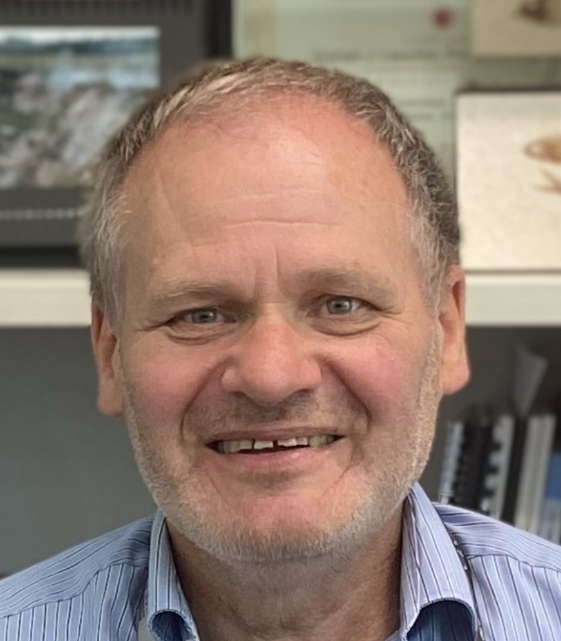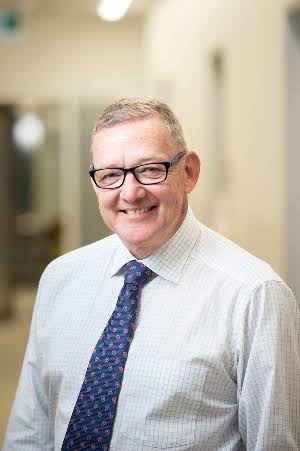A number of haematologists and blood cancer researchers have been recognised for their contributions to the specialty in the 2023 Australia Day Honours.
Clinical Professor Graham Lieschke was made a Member of the Order of Australia (AM) for his “significant service to medicine as a haematologist, and to medical research”.
The accolade followed a career spanning more than three decades, during which Professor Lieschke came to be known for his pioneering use of zebrafish models for genetic research and discoveries in haematopoietic growth factors in oncology.

Professor Graham Lieschke
“Receiving news of the award was a great surprise and certainly a great honour, not just personally but also as recognition of all our clinical and research colleagues,” he tells the limbic.
First exposed to the field while studying at WEHI under ‘the father of modern haematology’, Professor Don Metcalf, Professor Lieschke said he instantly became drawn to work.
And other opportunities soon followed, notably when he joined a team examining haemopoietic growth factors and giving them to patients to work out how to help their white cells recover after chemotherapy.
“That was very exciting, and when I started my own lab, I decided to use zebrafish models for genetic research and also for basic research into how while blood cells develop and function,” he says.
“Over the years, I’m pretty pleased with the contributions and the collaborations we’ve been involved in.”
Leading the Lieschke Group at Monash University’s Australian Regenerative Medicine Institute since 2010, he has also held research positions at WEHI and the Ludwig Institute for Cancer Research amongst others.
Clinical and research appointments have included Royal Melbourne Hospital and Peter Mac, as well as an NHMRC senior research fellowship from 2007-2017. The co-editor of books on zebrafish methods and protocols and on haematopoietic growth factors, he has also published more than 140 research papers.
Nevertheless, Professor Lieschke stressed he was “just one cog in a big haematology research wheel with a niche in white blood cell macrophage development and function”.
And in his other life, he is also an accomplished organist, holding the position of music director at St John’s Southgate Lutheran Church in Melbourne and principal organist since 1977. In fact, the Churchill Fellowship he received in 2004 was for music, rather than medicine.
“It’s a little bit more than a hobby, you’d have to say it’s a passion as well and has always been a part of my life,” he says.
Also recognised was Associate Professor Peter Downie, the long-running head of paediatric haematology-oncology at Monash Children’s Cancer Centre in Melbourne.
Professor Downie was made a Member of the Order of Australia (AM) for “for significant service to paediatric oncology, to teaching, and to research”.

Associate Professor Peter Downie
He said he was particularly proud of the way the unit had transformed since he first joined up in 1994.
“Getting a proper team together is really important in paediatric cancer medicine,” he told the limbic.
“It needs to be multidisciplinary and we absolutely have that now. We also have a strong research bent here, which I think is also good.”
A senior consultant oncologist at Royal Children’s Hospital, Melbourne, Professor Downie has also held clinical and research roles in the UK and United States.
His own personal research began in leukemia biology, starting with a two-year stint at the University of Chicago and continuing on his return to Australia in the early 1990s.
He said that, unlike in adult oncology, there was “no divide between haematology and solid tumours” in paediatrics, so he and his team cared for patients with the broadest possible range of conditions.
“Actually, I also do non-malignant haematology, because that was my original training, although there aren’t many of us left who do all of that.”
A keen fundraiser, he said another key achievement was the creation of an initiative, which had raised money to train 18 oncologists over the past two decades, many of whom were now working overseas in senior roles.
He also had been a regular participant in the Murray to Moyne Cycle Relay, a 520km cycling event run over 24 hours to raise money for the Children’s Cancer Foundation.
“We call ourselves the Cyctotoxic Cyclists and I’ve done it 21 times, although COVID-19 provided an interruption and I’m not sure if I’ll manage it again.”
“It will involve taking turns and riding throughout the night which can be pretty wearing, but it’s also pretty fantastic. It’s a great feeling to do it and something different.”
A number of researchers were also recognised in the honours list, including Professor Michael Berndt, who is now John Curtin Distinguished Emeritus Professor at Curtin University.
Professor Berndt was made an Officer of the Order of Australia (AO) for “For distinguished service to medical research in the field of haematology, to tertiary education, and to the promotion of science”.
A former president of the International Society on Thrombosis and Haemostasis, he has also been a senior principal research fellow at the NHMRC, president of the Australian Vascular Biology Society and a board member of Cancer Council Victoria.
Additionally Professor Berndt has sat on the editorial board of journals including Blood, Current Angiogenesis, Journal of Thrombosis and Haemostasis and Clinical and Experimental Pharmacology and Physiology.
Each year, the limbic scours the lists for specialists joining the Order of Australia honours. If you believe someone has been left off, please get in touch at [email protected]